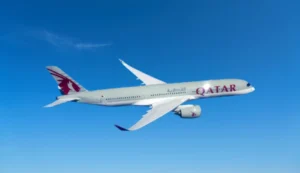Airlines Reroute as Middle East Airspace Shuts Down
Following Israeli strikes on Iran, vast portions of Middle Eastern airspace have shut down, causing massive global flight cancellations, rerouting chaos, and rising aviation safety concerns.

Tensions escalated dramatically in the Middle East as Israel launched targeted strikes on Iranian nuclear and military sites, prompting a sweeping airspace lockdown across Iran, Iraq, Jordan, and Israel. The resulting disruption forced major airlines around the globe to cancel or reroute thousands of flights, highlighting the growing risk that geopolitical conflict poses to global aviation.
Ben Gurion Airport in Tel Aviv was temporarily shut down, and Israeli air defenses were placed on high alert. Major airlines including El Al, Air France-KLM, Delta Air Lines, Wizz Air, and Ryanair quickly suspended operations to and from Israel. Delta extended its suspension until at least the end of August.
Flight tracking data revealed empty skies over much of the Middle East, especially above Iran, Iraq, and Jordan. Airlines began rerouting flights via Saudi Arabia, Egypt, Turkey, and the Caucasus region to avoid conflict zones.
Eurocontrol estimated that over 1,800 Europe-bound flights were affected in a single day, with 650 cancelled altogether. This disruption comes at a time when the Middle East has become a vital corridor for Europe-Asia flights, due to ongoing closures of Russian and Ukrainian airspace.
Oil prices surged in response to the conflict, pressuring airline stocks worldwide. Carriers like British Airways’ parent IAG, Delta, and Ryanair saw notable share declines.
The closure of Iranian airspace had an immediate ripple effect. Air India was forced to divert or return multiple international flights. Lufthansa, Emirates, and Qatar Airways suspended flights to impacted countries, while Russia’s civil aviation authority instructed its airlines to avoid the entire conflict zone.
Airspace over eastern Iraq, one of the busiest aviation corridors in the world, also shut down, compounding delays and fuel cost burdens.
This event is the latest in a troubling trend where airlines must operate amid flashpoint conflicts. Recent years have seen aircraft unintentionally shot down in warzones, such as Malaysia Airlines MH17 and Ukraine International Airlines PS752. The current situation underscores the urgent need for enhanced aviation risk assessment as skies grow more dangerous.







